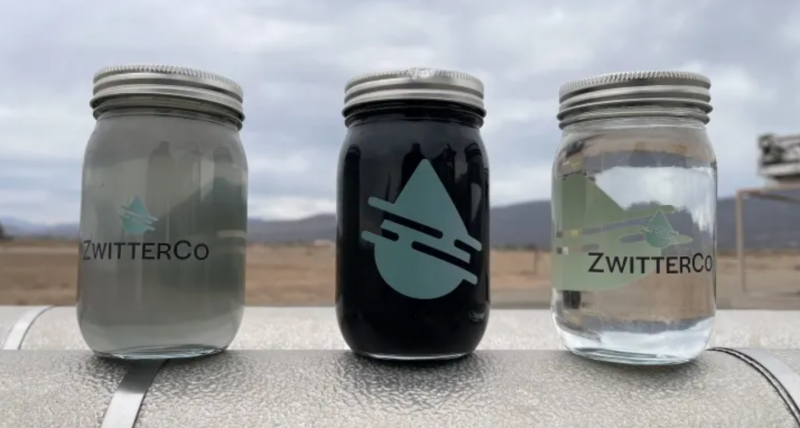Chemically engineered water filtration system helps industrial processors recycle their wastewater
Published on by Water Network Research, Official research team of The Water Network in Technology
This startup’s chemically engineered water filtration system helps large farms and industrial processors recycle their wastewater
KEY POINTS
Wastewater reprocessing startup ZwitterCo announced that it has raised $33 million to scale up its chemically engineered membrane water filtration technology to help industrial companies and large farms recycle wastewater.
The patented filtration technology came out of a research lab at Tufts University.
In many cases — such as in manure digestate treatment, meat and poultry treatment, dairy waste water, and bioprocessing applications — the material that is filtered out with can be resold as fertilizer or feedstocks.
The water in the jar on the left is wasterwater before being put through ZwitterCo's filtration membrane. The jar on the right is water cleaned and ready for reuse. The jar in the middle is the concentrate of waste that has been pulled out of the water with the filtration system and can be used in to make other products, like fertilizer of feestock, which can be sold.
The water in the jar on the left is wasterwater before being put through ZwitterCo’s filtration membrane. The jar on the right is water cleaned and ready for reuse. The jar in the middle is the concentrate of waste that has been pulled out of the water with the filtration system and can be used in to make other products, like fertilizer of feestock, which can be sold.

Photo courtesy ZwitterCo
The wastewater reprocessing startup ZwitterCo has raised $33 million to scale up its chemically engineered membrane water filtration technology to help industrial companies and large farms recycle wastewater from their systems, allowing them to use less fresh water.
“The goal for us is to maximize reuse, so that you can limit the amount of freshwater consumption,” CEO and cofounder Alex Rappaport told CNBC in a video interview. “We’re going to enable a future of water abundance.”
That’s important now because climate change is increasingly making fresh water a scarce commodity. Currently, 37% of the United States and 44% of the lower 48 states are in a drought, according to the National Integrated Drought Information System.
“The world is getting hotter and, in many places, drier. Demand for water outstrips supply in much of the United States, including the Colorado River Basin, which is at its lowest level in 1,000 years,” Jason Pontin, a partner at DCVC, the venture capital firm that is leading this funding round, explained in a post about their investment.
“But Americans also waste a lot of water: every day, industrial facilities in the U.S. discharge 255 billion gallons of wastewater into public waterways,” said Pontin, who is also the chair of ZwitterCo’s board. “Most of that is treated through chemical, physical, or biological means, but it’s still not pure enough for industrial reuse. If it were, then facilities wouldn’t discharge it.”
That’s the problem ZwitterCo is solving with its membrane technology made of so-called “zwitterionic copolymers” — hence the company’s name — which was first developed by the chemical engineering professor Ayse Asatekin at Tufts University.
Taxonomy
- Wastewater Use
- Treatment Methods
- Filtration
- Filtration Solutions
- Biological Treatment
- Industrial Water Reuse
- Filtration
- Reuse
- Filtration Separation
- Recycling and reuse